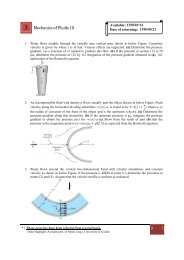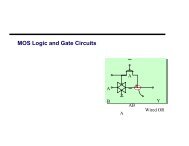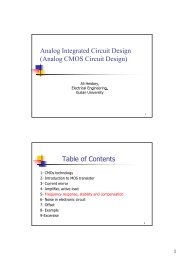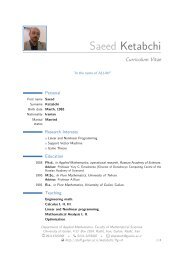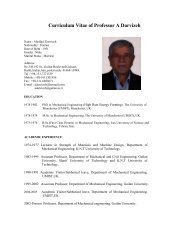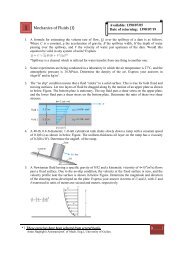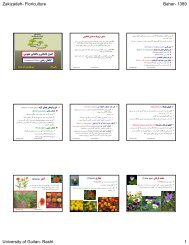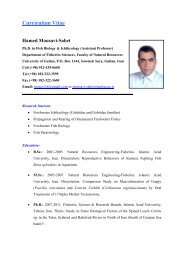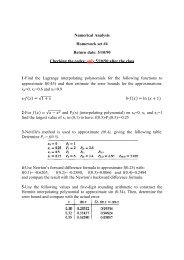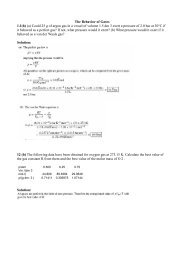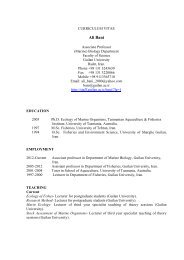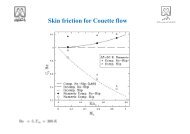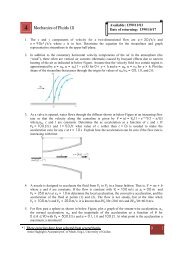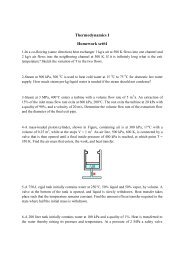Medical Tourism in Developing Countries
Medical Tourism in Developing Countries
Medical Tourism in Developing Countries
- No tags were found...
Create successful ePaper yourself
Turn your PDF publications into a flip-book with our unique Google optimized e-Paper software.
36 ● <strong>Medical</strong> <strong>Tourism</strong> <strong>in</strong> Develop<strong>in</strong>g <strong>Countries</strong>be high tech and state of the art; the facilities are sophisticated and clean;the service is impeccable. <strong>Medical</strong> tourism is not sold to cruise passengerson a land package, like handicrafts at a port stall. It is not sold on the worldmarkets through large Western mult<strong>in</strong>ationals that control the entire verticalproduction process. It is not a cash crop extracted from the land. Indeed,none of the five characteristics of dependency theory described by DudleySeers are applicable to medical tourism. The foreign capital and technologythat was transferred did not play a negative role on the receiv<strong>in</strong>g regions, aswill be argued <strong>in</strong> chapters 4 and 5. In the case of medical tourism, <strong>in</strong>ternalpolicies (discussed <strong>in</strong> chapter 4) are more important than <strong>in</strong>ternationalforces. While it is too soon to judge what the benefits of medical tourismwill be for development on a national level, there is no doubt that <strong>in</strong>comeis be<strong>in</strong>g generated and that there are spillover effects throughout the economy.Moreover, the role of <strong>in</strong>ternational capitalism is not large as most<strong>in</strong>vestment <strong>in</strong> the medical part of medical tourism comes from domesticsources (this is different for nonmedical tourism such as hotels and rentalcar bus<strong>in</strong>esses). Lastly, the development of medical tourism does not blockeconomic development and prevent <strong>in</strong>dustrialization. It might be arguedthat the development is distorted s<strong>in</strong>ce it fosters health care for rich foreignersand away from public health, but that is a preventable possibility, entirely<strong>in</strong> the hands of the public sector policy (to be discussed <strong>in</strong> chapter 6).The above aspects of dependency relate to the big picture and the sweep<strong>in</strong>geffects of foreign capital on third world countries. Hon<strong>in</strong>g <strong>in</strong> on themarkets for the goods produced by those countries will shed further lighton why medical tourism is not like peanuts. The issue of elasticity ofdemand, both price and <strong>in</strong>come, is crucial.Simply put, <strong>in</strong> the colonial and post-colonial periods, many develop<strong>in</strong>gcountries produced cash crops for export while import<strong>in</strong>g manufacturedgoods. The terms of trade worked aga<strong>in</strong>st them because of different elasticitiesof demand for agricultural and manufactured goods. The global demandfor primary products is characterized by relatively low <strong>in</strong>come elasticity ofdemand—<strong>in</strong> other words, as <strong>in</strong>comes across the world rise, the demandfor agricultural products will not rise proportionally (people will not buysignificantly more peanuts just because they have more money). Incomeelasticity of demand for manufactured goods is high s<strong>in</strong>ce people will buymore cars, music systems, and refrigerators as their <strong>in</strong>come rises. Withrespect to price elasticity of demand, aga<strong>in</strong> there is a difference betweenagricultural and <strong>in</strong>dustrial goods. Price elasticity for primary products suchas food is low while it is relatively higher for manufactured goods.Then tourist <strong>in</strong>terest <strong>in</strong> the develop<strong>in</strong>g world exploded. It was rare tohave an abundant factor of production (natural capital) whose demand was



